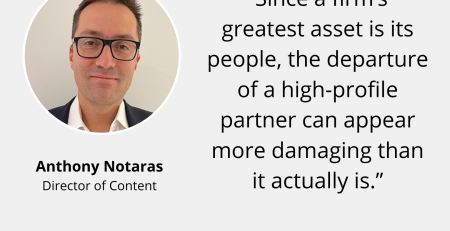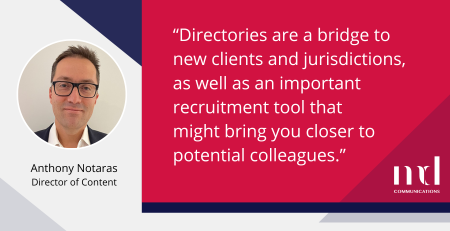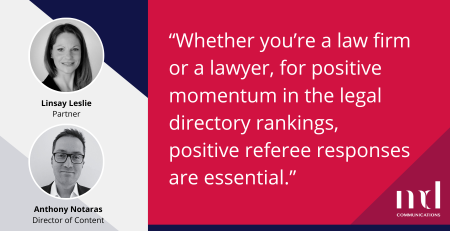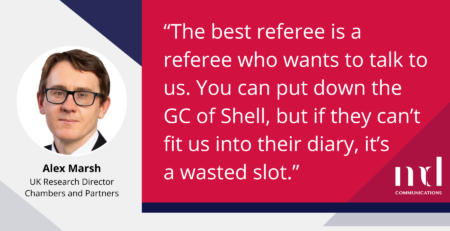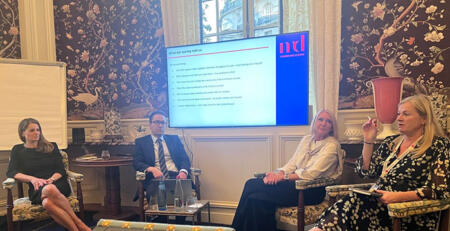Picture the scene. One of the leading directories – The Legal 500 or Chambers & Partners – is published. Next morning the phone rings, and it’s one of your lead clients. “I see you dropped a tier this year – so on reflection, we’re thinking finish off your current matters for us, and then we’ll instruct someone else.”
This would, of course, be an unlikely call to get – something that lawyers who say the directories “don’t matter” have noticed. A more probable – but still extremely rare – scenario is that one of the world’s largest companies likes the sound of your write-up, and instructs you out of the blue. This was the experience of one Bristol firm, but isn’t to be relied upon. And how can a researcher in their 20s judge your practice?
And yet, I think the directories – and good write-ups and rankings – do matter. Let’s consider why.
Differentiation
Attempts by law firms and barristers chambers to differentiate themselves in marketing materials have a very – how to put this nicely? – similar feel. Right the way down to shared phrases.
Look at a few websites. A huge number of firms say , with small variations, “we’re a different sort of law firm… commercial first, lawyers second”, and so on. And no, putting your “clients first” is not a value-add.
A good ranking and write-up gets you away from that sameiness. Someone has looked at your practice, spoken to your clients, and considered what makes you different. If words don’t matter, why have you spent time and money on your website?
Independence
Both main directories make a big thing of their methodology these days. They aren’t objective – being subjective is part of their value – but they are independent, and they have looked at your best case beside that of rivals. Any firm should be interested in the directories’ assessment of their place in the market.
That independence is also why firms and chambers of all sizes like to quote the directories’ assessments.
Clients do notice
Clients notice. Or rather, potential clients notice. With a heavy stress on client interviews, many take an interest in the write-up that falls out the other side. And whereas you’ll probably not get the push for a low ranking, the directories are a starting point in many pitches – you probably won’t get an instruction straight off, but many clients draw up a short list for tender and pitch invites. This is especially true for clients from other jurisdictions.
Equally, a general counsel may find a good write-up useful in defending their choice of counsel when the finance director queries it.
To pay or not pay?
The time spent on preparing submissions and doing interviews, and getting clients to agree to be referees, is a considerable outlay for any firm. If the directories are independent write-ups, why add to the expense by booking profiles?
Well, if you agree with me and see a value in the above, I would say yes. Ideally interaction with the directories is part of an ongoing relationship. The main directories are so much better than the vanity-publishing alternatives, and no other professional sector has a resource quite like them.
Put it this way – if you went to one of the trendy “pay what you want” restaurants, would you leave some money for a good meal? I bet you would.
Melissa Davis is the managing director of MD Communications, the international legal PR agency. She is also co-chair of the IBA Law Firm Management Committee Business Development Working Group and a member of the ABA Transnational Legal Practice Committee. MD Communications is on Twitter @mdcomms



